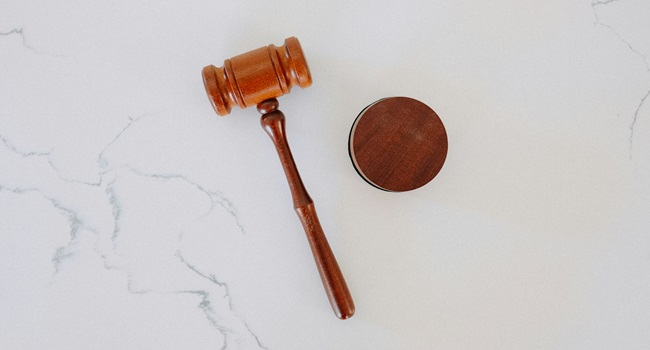Personal injury claims can be a challenge, particularly when navigating the complexities of the legal system. Whether you have suffered an injury due to a car accident, medical negligence, or any other incident, understanding the steps involved in filing a claim is important. This guide aims to provide a clear pathway for individuals seeking compensation for personal injuries, specifically in relation to the healthcare sector and the hospital fraternity.
The Initial Steps After an Injury
After sustaining an injury, the first step is to seek medical attention. This is important for your health, and documenting the extent of your injuries will be vital to your claim. Proper medical records provide evidence of the treatment you received and the injuries sustained. If the injury occurred in a healthcare setting, the documentation becomes even more significant, as it establishes a timeline and context for your claim. If you decide to pursue legal action, consider a reliable personal injury law firm that can guide you through the initial process with expertise and care. These firms specialize in handling personal injury cases, providing you with the knowledge and support needed to navigate the complex legal landscape. They can help you understand your rights, evaluate the merits of your case, and explore the potential for compensation.
Gathering Evidence
Collecting evidence is a critical step in building a strong personal injury case. This includes gathering medical records, photographs of the injury, and documentation of any expenses incurred due to the injury. If the incident occurred in a hospital or healthcare facility, be sure to collect any related reports or witness statements. Witnesses play a significant role in establishing liability. Statements from those who witnessed the incident can strengthen your case and provide a clearer picture of the events that transpired. Moreover, keeping a detailed journal of your experiences following the injury can be beneficial. Record your recovery journey, capturing physical limitations, emotional challenges, and any shifts in your quality of life. This can provide valuable insight into how the injury has impacted your life.
Determining Liability
Identifying who is liable for your injuries is essential for a successful claim. In personal injury cases, liability refers to the legal responsibility of an individual or entity for causing harm to another. If the injury occurred due to negligence—such as improper medical treatment or inadequate safety measures—then the responsible party may be held liable. In the context of healthcare, medical malpractice may be a factor. If a healthcare professional fails to provide an acceptable standard of care, leading to your injury, you may have a case for medical negligence. Understanding the nuances of liability in the healthcare sector can be complex, which is why working with a knowledgeable attorney is beneficial.
Understanding the Legal Framework
The legal framework surrounding personal injury claims varies by jurisdiction. Familiarize yourself with the laws in your area, including statutes of limitations, which dictate the time you have to file a claim. In many jurisdictions, the statute of limitations for personal injury claims is typically two to three years from the date of the injury. Understanding local laws can also significantly impact how you approach your case, as legal frameworks can vary greatly from one jurisdiction to another. For instance, some states follow a “comparative negligence” model. This means that if you are found partially at fault for your injury, your compensation may be reduced proportionally to your degree of fault. Such nuances in legal definitions and applications can profoundly affect the outcome of your claim. Therefore, knowing these details and how they apply to your situation can help you navigate your claim more effectively, ensuring that you are prepared to counter any legal challenges and maximize your potential compensation.

Filing the Claim
Once you have gathered all necessary evidence and established liability, the next step is to file your personal injury claim. This involves submitting a formal complaint to the appropriate court. The complaint should outline the details of the incident, the injuries sustained, and the compensation sought. If your claim is against a healthcare provider, it may also be necessary to file a notice of intent to sue, which informs them of your intentions and provides them the opportunity to respond. In some cases, the healthcare provider may offer a settlement before the case goes to trial. This can save time and resources but be cautious. Always consult with your attorney before accepting any settlement offers, as they may undervalue your claim.
Negotiating a Settlement
Negotiating a settlement can often be one of the most challenging parts of the claims process. Insurance companies may initially offer a low settlement amount, hoping to resolve the claim quickly. Thoroughly evaluate the offer, taking into account the entirety of your damages, such as future medical expenses, lost wages, and pain and suffering. Your attorney will be pivotal in negotiating with the insurance company. They will use the evidence gathered to advocate for a fair settlement. If negotiations are unsuccessful, your attorney can guide you through the process of taking your case to court.
Preparing for Court
If your case does proceed to court, preparation becomes paramount. This involves organizing all necessary documentation but also preparing yourself for the trial’s proceedings and expectations. Courtroom procedures can be complex, and understanding the role of each participant—such as the judge, jury, and attorneys—can alleviate some anxiety. Your attorney will help you prepare for your testimony, guiding you on how to present your case effectively. Be ready to answer questions about the incident, your injuries, and the impact on your life. The more prepared you are, the more confidence you will have during the trial.
Navigating the legal process for a personal injury claim can be challenging, particularly in the healthcare sector where additional complexities may arise. From gathering evidence to negotiating settlements, each step requires careful consideration and often professional guidance. By understanding the process and enlisting the help of a reliable personal injury law firm, you can effectively advocate for your rights and seek the compensation you deserve. Remember, your health and well-being should always come first, but pursuing justice for your injuries is also a critical step in the recovery process.


















